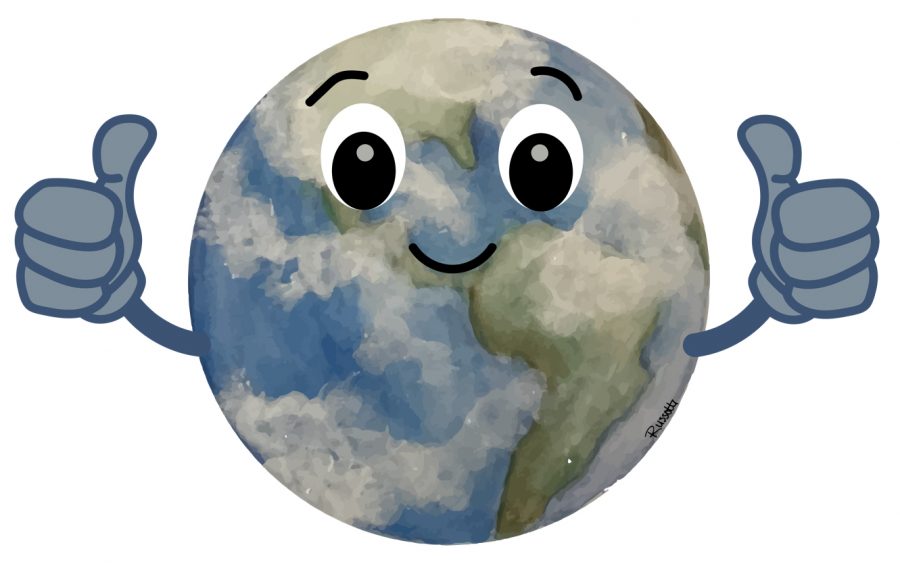Should we honor the Paris agreement? Domestic action has more value
November 21, 2019
I am a dedicated environmentalist. I donate my time and labor to environmental movements, groups and political candidates.
But when President Donald Trump announced his intention to pull the U.S. out of the Paris climate agreement, I did not care in the slightest.
And when Trump officially started that process last week, I still didn’t care. Because international agreements, on their own, are meaningless.
Think of international agreements like the Paris climate agreement like your family’s chore chart at home: except you, the top 10% of global consumers, are the messiest, dirtiest children to have ever existed.
Of course, the other members of your household make messes from time to time, too.
Your younger sibling keeps messing with the air conditioning and turning the heat up, and your grandparents are constantly leaving windows and doors open.
But it’s you, the messiest, most-consuming child of all time, that is responsible for the biggest percentage of the mess for one person.
According to climate scientist Kevin Anderson, the top 10% of global consumers, centered mainly in the United States, Europe and former British Colonies, produce 50% of global emissions.
Your family has a meeting. They’re all sick of it. They hate living like this. Even though it’s mainly your fault, they all agree to clean things up from here forward.
By the end of the week, you are supposed to completely clean your room and take out the trash. There’s no monetary reward for cleaning it or punishment for not cleaning it.
You sign up for the chore chart because you don’t want your family to be mad at you anymore. But the end of the week rolls around. Your room isn’t any cleaner.
In fact, it’s dirtier than ever before. You’ve started hiding more trash under your bed.
Everyone sees that you haven’t cleaned, so they figure that they don’t have to either. They can see that the fact that a chore chart existed matters less than the action of cleaning up in the first place.
Even before the U.S. pulled out of the Paris climate agreement, we were not meeting our goals. Since the agreement was implemented, global emissions were up 1.7% in 2017 alone, according to a March 2018 New York Magazine article.
According to Climate Action Tracker, an organization dedicated to monitoring countries’ compliance with the Paris climate agreement, only one country is meeting its goals: Morocco. Every other nation is failing.
No country will act unless the U.S. leads the way. There’s no reason for them to clean up the mess when the biggest culprits are still at large.
The U.S. produces the second most emissions in the world after China, and the second most per capita after Saudi Arabia, according to 2019 data from World Population Review.
Following the U.S. on per capita emissions are Australia and Canada. The problem of curbing global emissions isn’t distributed evenly by country.
The U.S. consumes 20 million barrels of oil a day, according to the U.S. Energy Information Administration’s website.
That is 8 million more than second place China, and 20% of the world’s oil use.
The United Nation’s own climate research shows that for the planet to survive, we need to reduce our usage of fossil fuels by around 90%.
But the Paris climate agreement doesn’t even mention fossil fuels in it, according to a Dec. 2018 New York Times article.
In fact, even if every country were to meet the Paris climate agreement, we would still reach 2 degrees celsius global warming, the milestone the signers of the Paris climate agreement said would be far too risky to reach as a planet, according to the same article.
The evidence is clear that being in the Paris climate agreement is not the answer to the global climate crisis. Transitioning our economy off of fossil fuels and to renewable energy is.
And that will only happen through domestic action, with the U.S. government leading the way and giving a model of sustainable energy other nations can follow.







